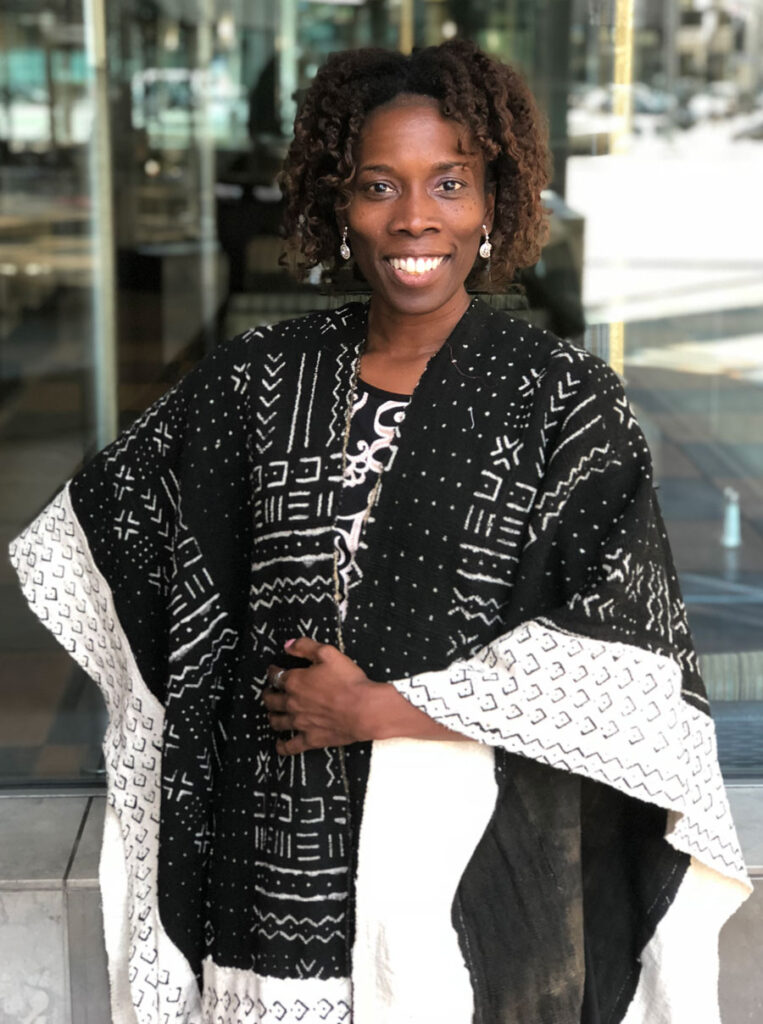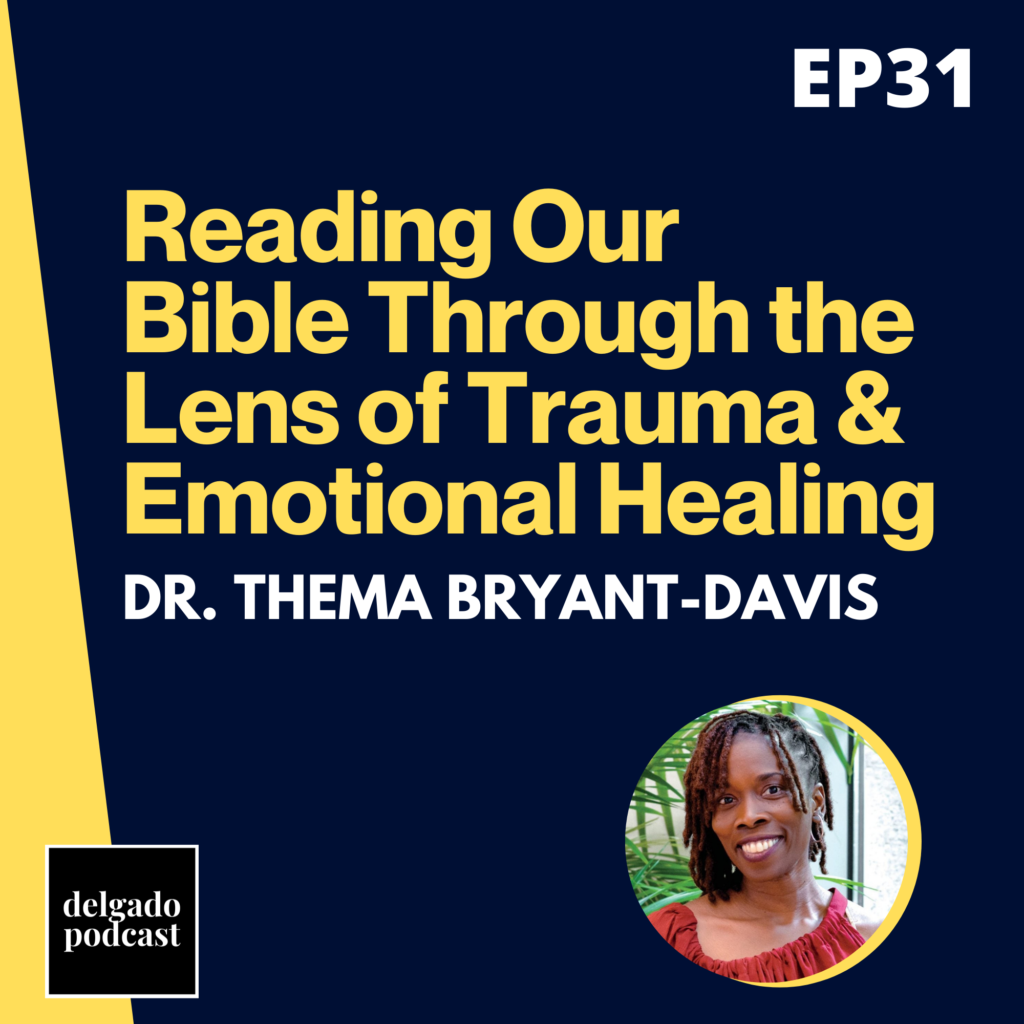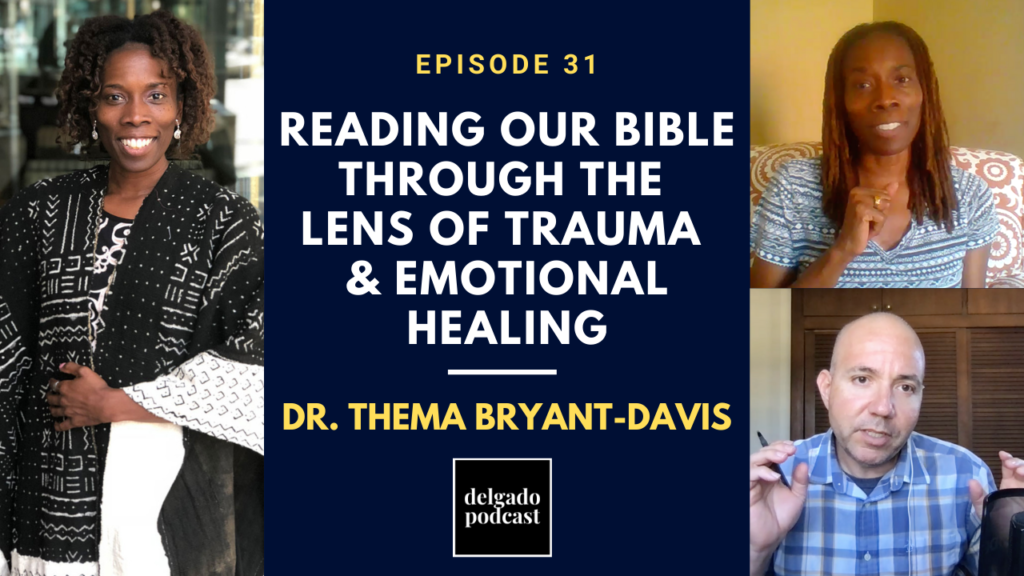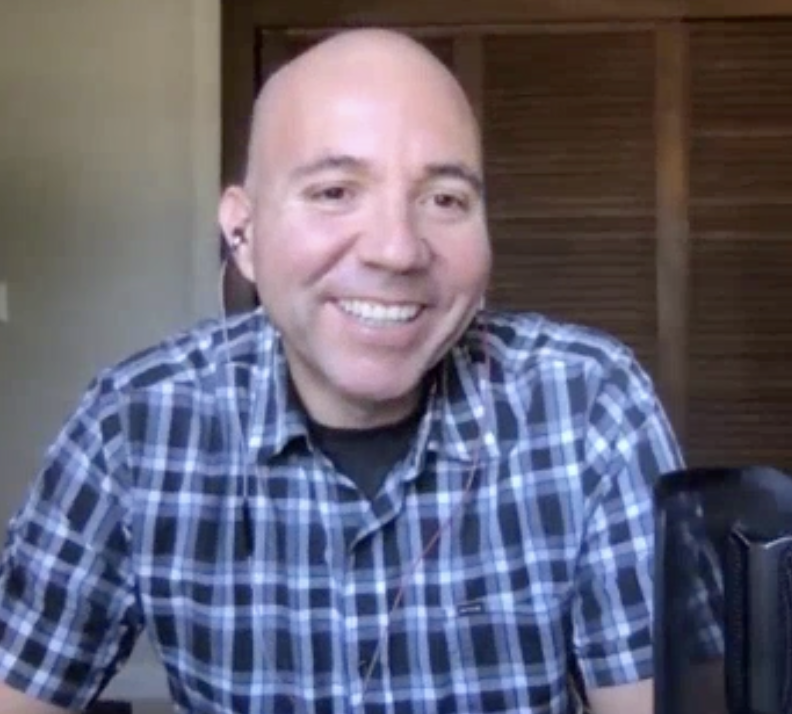 How we understand our Bible can depend on our cultural viewpoints, church traditions, theological background, and personal experiences.
How we understand our Bible can depend on our cultural viewpoints, church traditions, theological background, and personal experiences.
Our view of Scripture can also be largely shaped by any sort of trauma we’ve experienced (and this includes trauma inflicted on us by spiritual leaders and/or churches).
In today’s podcast, we’re honored to learn from Dr. Thema Bryant-Davis about how trauma impacts us, ways to overcome the silent stigma of mental health at church, ways to see gender oppression in our denominations, how to better read and understand traumatic stories in Bible (especially when the offender is seen as the Biblical hero), and ways that we can better love and care for trauma survivors in our life.
Dr. Thema also provides key insights into ways to read several traumatic Bible stories; including: The Story Hagar, The Trauma & Silencing of Tamar, and seeing Bathsheba as victim (instead of David’s seductress).
These disturbing and traumatic stories in Scripture are tough (and not easy for any of us to read). Dr. Thema Bryant-Davis shares powerful insights on the types of questions we should be asking ourselves when we encounter trauma in the Bible. Her empathetic and healing approach to read these tough passages in our Bibles will forever change the way you read and discuss these stories with others.
Dr. Thema Bryant-Davis is a licensed psychologist, ordained minister, and sacred artist who has worked nationally and globally to provide relief and empowerment to marginalized persons. Dr. Thema, a professor at Pepperdine University, is a past president of the Society for the Psychology of Women. Her contributions to psychological research, policy, and practice have been honored by national and regional psychological associations. You can follow her on Twitter, Instagram and YouTube. You should also subscribe to the Homecoming Podcast, focused on providing you with weekly inspiration and health tips.
I pray this conversation encourages us to become more empathetic readers of our Bibles and help us to love and care for the trauma victims in our own lives.
Please be aware that this podcast episode includes conversations on assault and abuse in the Bible, which may be hurtful and/or upsetting.
You can subscribe or download this episode on iTunes, Spotify, Google Podcasts or Stitcher. You can also subscribe to the video series on YouTube.
You can listen (or download) the complete podcast here:
Here are some video clips from our conversation:
• Mental Health Stigma in the Church
• Gender Oppression at Church
• The Traumatic Story of Hagar
• Jesus, The Crucifixion & Trauma
• Tamar’s Trauma Minimized
• Ways to Understand Trauma in the Bible
• Helping Trauma Survivors
• The Lot Story
• Queen Vashti
• Bathsheba: Victim or Seductress
• Power Dynamics & Sexual Harassment
• Walking with Trauma Survivors
You can catch the full video on a Biblical stories of trauma, spiritual abuse and restoration here.
Dr. Thema Bryant-Davis
Dr. Thema Bryant-Davis is a licensed psychologist, ordained minister, and sacred artist who has worked nationally and globally to provide relief and empowerment to marginalized persons. Dr. Thema, a professor at Pepperdine University, is a past president of the Society for the Psychology of Women. Her contributions to psychological research, policy, and practice have been honored by national and regional psychological associations.
Dr. Thema received her doctorate from Duke University in Clinical Psychology with a focus on the cultural context of trauma recovery, as well as the intersection of gender and racial identity. She completed her post-doctoral training at Harvard Medical Center’s Victims of Violence Program. From 2001-2004, she served as Senior Staff Psychologist and Coordinator of the Princeton University SHARE Program, a counseling, education, training, and policy program aimed at addressing assault, harassment, and abuse. Dr. Thema was a faculty member at Lesley University in Boston and then the California State University of Long Beach. She is a tenured professor of psychology at Pepperdine University where she teaches on Trauma in Diverse Populations and Clinical Skills. She is a contributing author in the books The Psychology of Racism, The Complete Guide to Mental Health for Women, and Featuring Females: Feminist Analyses of the Media.


Check out the full archive of past episodes on spirituality, social justice, and scriptures here.

